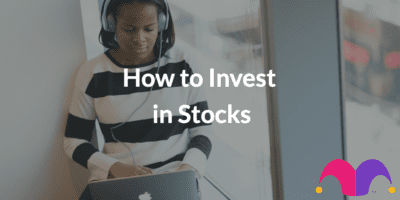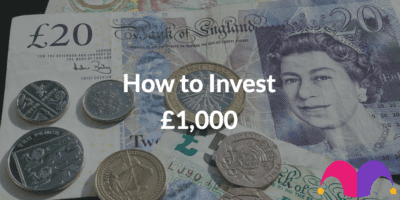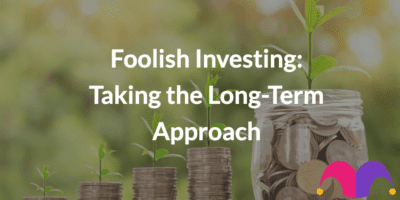So which asset should you go for as a long-term investment?
Numerous studies have been done about the rates of return that each of them have produced down the years. Generally speaking, assets that have demonstrated higher returns tend to be more volatile (i.e. their prices move up and down a lot more), especially when you look at shorter time periods. However, most studies show that the asset that has generated the best returns over the long term is equities.
RELATED: Foolish Investing: Taking the Long-Term Approach
Average returns
According to Credit Suisse First Boston, here are the average annual returns for the UK since 1900. These figures are adjusted for inflation, also known as the real return. This is because you want to compare like with like, i.e. spending power now versus spending power in the future.
| Cash | Bonds | Shares |
|---|---|---|
| 1.0% | 1.3% | 5.3% |
The numbers may look small but you need to consider the power of compounding. It’s a virtuous circle, or snowball effect, meaning that even a real rate of ‘just’ 5% can produce a large sum, given enough time. It also means that apparently small differences can have a significant impact on the final amount.
Let’s look at what would happen to £10,000 invested over 20 years at the above rates (i.e. still adjusting for inflation).
| Cash | Bonds | Shares |
|---|---|---|
| £12,200 | £12,950 | £28,090 |
We must stress, however, that these returns are certainly not guaranteed. These figures are the average returns from the past 100+ years.
In the case of shares in the 1980s and 1990s, average annual returns were a lot higher, while in the 2000s they were much lower. They could be higher, or lower, over the next 10, 20 or 30 years as well. No one knows!
Still, it is worth pointing out that these long-term performance figures include the Great Depression that followed the 1929 crash, World War II, Black Monday in October 1987, the Asian Crisis of 1998 and the two bear markets we’ve endured since 2000. Investing in shares over the short term can be risky, but the longer you invest for, the less risky and more profitable it should become.
Watch out for charges
At this point we should also mention charges. All else being equal, the lower the charges you pay the higher you can expect your eventual return to be. As we saw in the table above, even small percentage differences can make a huge difference to the final amount. Unfortunately, here in the UK we have a financial services industry that has a talent for both high charges and clever marketing to obscure that fact!
The industry also loves to put several layers of middlemen in between your money and its eventual investment destination. Each takes their cut and that leaves less for you. So make sure you read the small print, as all investment products have to lay out their charges in what is known as a ‘Key Investor Information Document’ or KIID.
[KevelPitch adtype=151]




